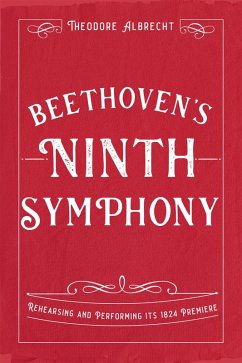In 1805, the world of music was startled by an avant-garde and explosive new work. Intellectually and emotionally, Beethoven's Third Symphony, the "Eroica," rudely broke the mold of the Viennese Classical symphony and revealed a powerful new expressiveness, both personal and societal. Even the whiff of actual political revolution was woven into the work-it was originally inscribed to Napoleon Bonaparte, a dangerous hero for a composer dependent on conservative royal patronage. With the first two stunning chords of the "Eroica," classical music was transformed.
In Beethoven's Eroica, James Hamilton-Paterson reconstructs this great moment in Western culture, the shock of the music and the symphony's long afterlife.
Dieser Download kann aus rechtlichen Gründen nur mit Rechnungsadresse in A, B, BG, CZ, D, DK, EW, E, FIN, F, GR, HR, H, I, LT, L, LR, NL, PL, P, R, S, SLO, SK ausgeliefert werden.









